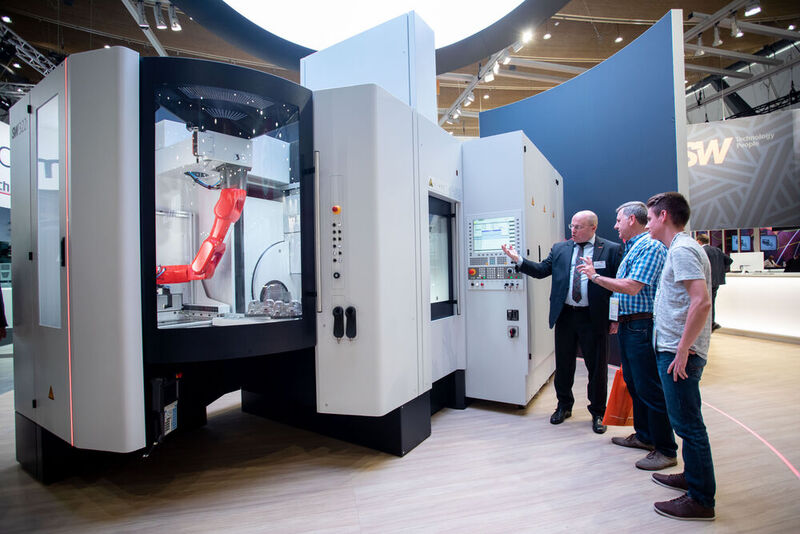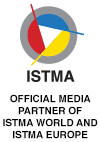Update on the German machine tools industry and its markets
17.08.2022
Marketplaces like AMB 2022 always act as a barometer of industry sentiment and this is because technical details and commercial topics, such as faltering supply chains and delivery deadlines, will be discussed at the event in Stuttgart from 13 to 17 September 2022.
 At AMB, product innovations from the machine tool industry take centre stage. (Source: Landesmesse Stuttgart )
At AMB, product innovations from the machine tool industry take centre stage. (Source: Landesmesse Stuttgart )
Chip shortages, scarcity of materials, the unstable energy supply – these are challenges that are currently being faced across all manufacturing sectors. Nevertheless, current figures show that virtually all sectors of industry want to invest in new machinery and metalworking equipment. Despite the dip in incoming orders from the German machine tools market in 2020, an astounding growth of 40 per cent was recorded between January and May of this year. As a result, levels have almost returned to the record achieved in 2018.
The booming electronics sector, the reinvigorated aviation industry, the trend towards e-mobility, investments in the environment and energy sectors, and the sharp increase in state military budgets as a result of Russian war in Ukraine have all contributed to these orders. Furthermore, VDW market experts expect that the demand for production technology in the automotive and components supply industry will increase once more in the coming year as the chip shortage situation gradually improves. The next opportunity to measure sentiment will be afforded to participants at AMB 2022, which will take place from 13 to 17 September 2022 in Stuttgart.
However, the bad news is that delays in delivery times are likely to continue into the coming year as a result of delivery bottlenecks. This will also have an impact on numerous components used in and around machine tools. According to the German Federal Statistical Office, the machine tool industry has an order book of approximately twelve months. As a result, production will only see limited growth this year: An increase of seven per cent is forecast for the summer. If interactions in the supply chains gradually become smoother again, the industry should see a year of strong growth in 2023.
Feeling the effects of the Ukraine war and the China lockdown
In June, the situation was considered “good” by the majority of German capital goods industry companies surveyed for the ifo Business Climate Index, though expectations for the next six months continued to be moderately negative on balance. It is clear that the consequences of the Ukraine war and the China lockdown are still being felt.
In the time since the start of the Russian war of aggression against Ukraine, Oxford Economics — an English economic research institute — has forecasted a decline in the global economy. Market observers now expect the 2022 global gross domestic product to grow by 3.1 percent and industrial production to grow by 3.4 percent amidst the continued stress on supply chains and high material and energy prices; figures which fall below the expectations from spring this year.
 Despite the difficult underlying circumstances, the industry is prepared to invest in machine tools. (Source: Landesmesse Stuttgart )
Despite the difficult underlying circumstances, the industry is prepared to invest in machine tools. (Source: Landesmesse Stuttgart )
The economic indicators — the Purchasing Managers’ Index and business climate indicator — are also showing signs of a slowdown in the immediate future. The global Purchasing Managers’ Index (PMI) fell to a 22-month low in June. However, it is still above the 50 mark, which — when exceeded — indicates growth. There have been positive signs from China, where the Index left the recession zone after five months, climbing to 51.7 points. Markets such as Japan, South Korea and India also remained in the growth zone despite a weakening in momentum. The PMI for the eurozone also fell to a 22-month low. Germany lost almost three points, hitting the European average of 52 points. The Index also declined in the US. The industry performed particularly well in the Netherlands (55.1) and Switzerland (59.1). In contrast, the situation was tense in Poland (44.4) and Turkey (48.1).
The much-discussed disruption to the gas supply also serves to demonstrate that we are living in a time of uncertainty and therefore the risks are very high. It is very difficult to calculate the effects that a shortage of natural gas may have on the industrial supply chain; however, upheaval is inevitable and the aftershock of this will definitely also have an impact on the demand for machine tools. For this reason, the VDW recommends that companies are commercially prudent and make preparations for a potential significant downturn.
Source: Messe Stuttgart
www.etmm-online.com













































